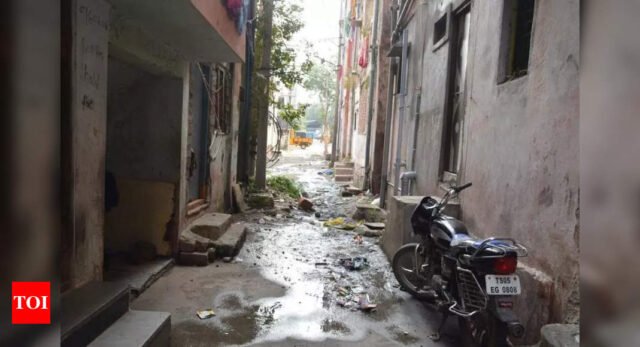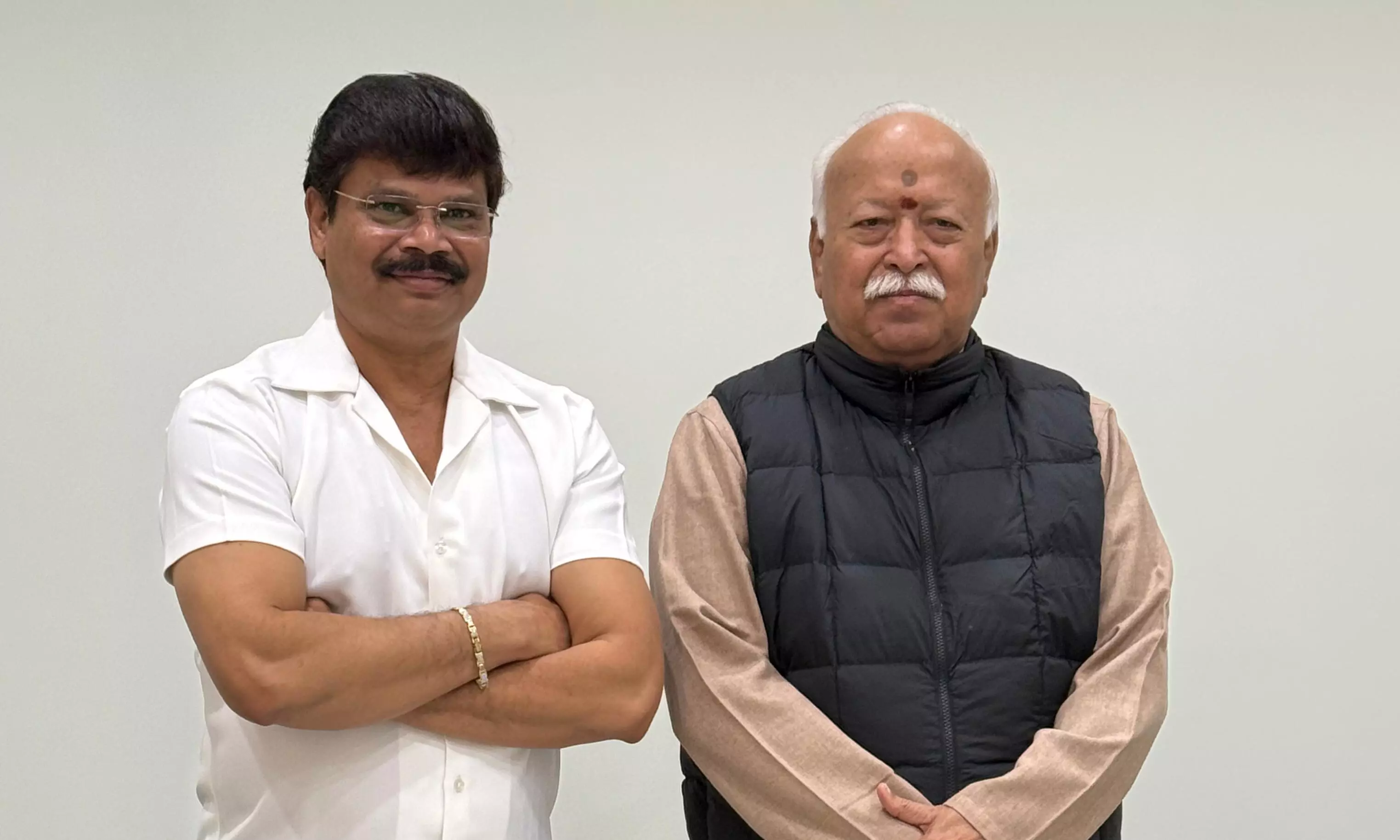Hyderabad: Residents of the Valmiki Ambedkar Awas Yojana (VAMBAY) settlement in Singareni Colony are grappling with poor sanitary conditions, despite their repeated appeals to the govt for much-needed improvements.
Built in 2005 and inaugurated in 2007, the 56 buildings were intended to provide safe housing and community toilets for urban slum dwellers. However, residents currently lack access to clean drinking water and a proper sewerage system.
The settlement is home to approximately 1,600 families, totalling around 5,000 people, and the absence of cleanliness has led to the spread of diseases like dengue and malaria.
“We’ve lived here for years, yet our basic needs remain unmet. Our children often fall ill due to contaminated water, as the tanks go uncleansed. Many residents here buy drinking water from outside,” lamented Shaik Mahmood, a local resident.
Mahmood also recalled, “Back in 2015-16, we wrote several letters to the govt, and the corporator at that time promised a budget of Rs 1.5 crore for assistance, but that never materialised. The situation has only worsened.”
The drainage system in the locality is in disrepair, resulting in waterlogging during the rainy season. “We have a running joke that the polluted Musi river flows right through our homes, as sewage floods our ground floors during monsoons. We’ve made numerous appeals to the authorities, but nothing has changed,” said Anjaiah, another resident.
Compounding the issue, inadequate garbage disposal has led to additional health risks. “Waste accumulates at every corner due to irregular collection. Mosquitoes breed in these dumps, and many residents, especially children, have contracted dengue in recent months,” added Kommu Devi, a concerned resident.
In response to the residents’ concerns, municipal deputy commissioner A Shailaja assured improvements. “While residents need to take responsibility for sanitation, we will implement awareness programmes on waste disposal. We’ll write a letter to the zonal commissioner to arrange for two autos to collect waste free of charge. Additionally, we will address water leakage and seepage issues with the relevant department.”
Built in 2005 and inaugurated in 2007, the 56 buildings were intended to provide safe housing and community toilets for urban slum dwellers. However, residents currently lack access to clean drinking water and a proper sewerage system.
The settlement is home to approximately 1,600 families, totalling around 5,000 people, and the absence of cleanliness has led to the spread of diseases like dengue and malaria.
“We’ve lived here for years, yet our basic needs remain unmet. Our children often fall ill due to contaminated water, as the tanks go uncleansed. Many residents here buy drinking water from outside,” lamented Shaik Mahmood, a local resident.
Mahmood also recalled, “Back in 2015-16, we wrote several letters to the govt, and the corporator at that time promised a budget of Rs 1.5 crore for assistance, but that never materialised. The situation has only worsened.”
The drainage system in the locality is in disrepair, resulting in waterlogging during the rainy season. “We have a running joke that the polluted Musi river flows right through our homes, as sewage floods our ground floors during monsoons. We’ve made numerous appeals to the authorities, but nothing has changed,” said Anjaiah, another resident.
Compounding the issue, inadequate garbage disposal has led to additional health risks. “Waste accumulates at every corner due to irregular collection. Mosquitoes breed in these dumps, and many residents, especially children, have contracted dengue in recent months,” added Kommu Devi, a concerned resident.
In response to the residents’ concerns, municipal deputy commissioner A Shailaja assured improvements. “While residents need to take responsibility for sanitation, we will implement awareness programmes on waste disposal. We’ll write a letter to the zonal commissioner to arrange for two autos to collect waste free of charge. Additionally, we will address water leakage and seepage issues with the relevant department.”







